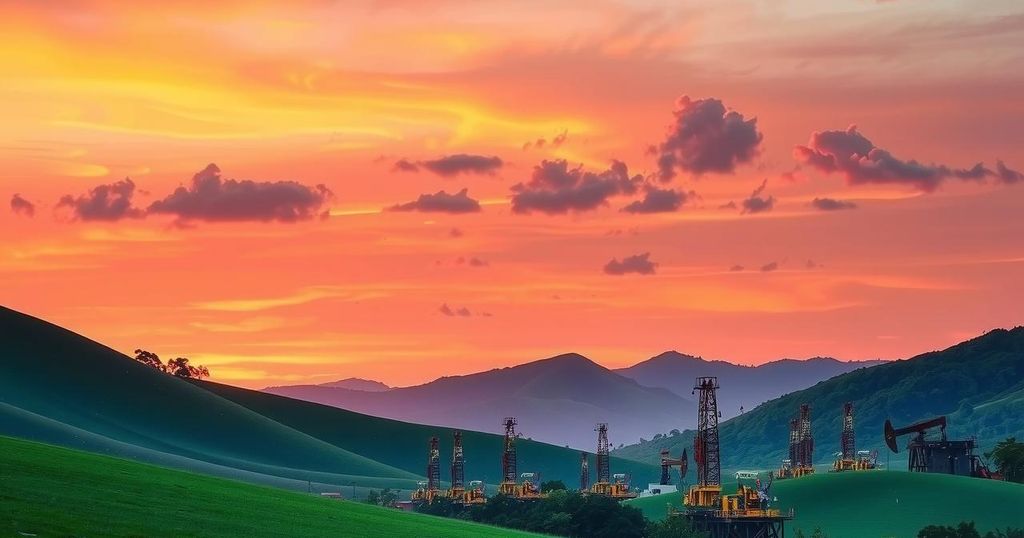Secretary of State Marco Rubio is visiting Guyana to offer U.S. security support due to rising tensions with Venezuela. Guyana, set to be the top oil producer per capita, will strengthen defense ties with the U.S. amid a territorial dispute with Venezuela over the Essequibo region. The U.S. seeks to enhance oil production and economic ties in the area.
U.S. Secretary of State Marco Rubio is set to visit Guyana to offer U.S. security support to the oil-rich nation amid escalating tensions with neighboring Venezuela, which has made territorial claims over Guyana. Following a decade marked by significant oil discoveries, Guyana is projected to become the world’s largest oil producer per capita, surpassing Qatar and Kuwait. Accompanied by the State Department, Rubio will sign a memorandum of understanding to enhance security cooperation between the countries.
Rubio’s trip follows discussions with Caribbean nations in Jamaica, after which he will also visit Suriname, which is experiencing its own oil production growth. The Trump administration envisions a relationship with Guyana similar to that of U.S. partnerships with Gulf Arab nations, in which American troops are stationed for security purposes, particularly concerning threats from Iran. Mauricio Claver-Carone, the U.S. envoy on Latin America, emphasized that “the security of Guyana is a key priority for us” in light of the threats posed by Venezuela.
Guyana’s President Irfaan Ali, facing reelection this year, has welcomed closer defense ties with the U.S., which includes plans for joint maritime patrols. Meanwhile, Venezuela’s leader, Nicolas Maduro, has claimed the Essequibo region—a significant area for oil production in Guyana—prompting international denunciation. Earlier in March, Guyana condemned an alleged incursion by a Venezuelan military vessel, which Venezuela denied, while Caracas proposed a meeting that Ali has since rejected.
The border dispute between the two nations stems from an arbitration panel’s decision in 1899, which Guyana asserts remains valid. Venezuela, however, claims historical rights over the Essequibo River area. Under Trump, the U.S. administration has prioritized increasing oil production, diverging from former President Biden’s focus on renewable energy to combat climate issues. Texas-based ExxonMobil leads oil output in Guyana and projects a gross production of 1.3 million barrels per day by the decade’s end, overshadowing Venezuela’s declining production due to various economic challenges and U.S. sanctions, further compounded by the cancellation of Chevron’s exemptions for operations in Venezuela.
In summary, Secretary Rubio’s upcoming visit to Guyana underscores the U.S. commitment to securing strategic partnerships in South America, particularly in response to Venezuelan threats. The burgeoning oil production in Guyana presents economic advantages, concurrently heightening geopolitical tensions. The U.S. aims to reinforce its influence in the region while addressing ongoing border disputes and fostering security cooperation with Guyana amid potential challenges from Venezuela.
Original Source: www.albianews.com






